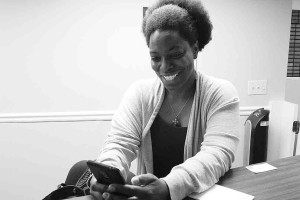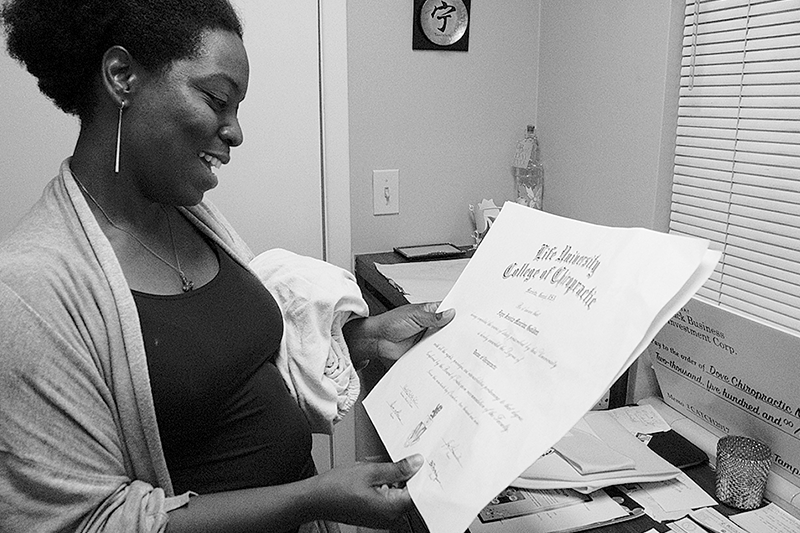Dr. Faye Golden specialized in chiropractic rehabilitation, headache management and more before moving to Liberia to provide healthcare to the needy.
BY INDHIRA SUERO ACOSTA, Staff Writer
ST. PETERSBURG – Dr. Faye Golden is a medical entrepreneur. She owns the Dove Chiropractic Medicine, Inc. where she offers chiropractic care and provides alternative medicine services for pain management. Recently she put her practice on hold to travel to Liberia with her nonprofit, Dove Love, Inc., where she is now providing health care to the needy in Monrovia.
Dr. Golden always knew that she wanted to be a physician. When trying to decide what kind of doctor she wanted to be, someone told her to figure out the kind of patients that she wanted to work with.
She realized that she wanted to see patients looking to solve their health issues, not just people searching for a Band-Aid® for their problems.
One aspect she enjoyed when becoming a physician was learning that there are many ways to treat and help people heal, all without the use of harsh and toxic substances.
 As an undergraduate student, the doctor was a toxicology and pharmacology biomedical research scholar at Morehouse School of Medicine in Atlanta. She earned her doctorate of chiropractic medicine from Life University in Marietta, Ga., and was the recipient of their scholarship program with research on the reduction of hypertension through noninvasive and no pharmacological methods.
As an undergraduate student, the doctor was a toxicology and pharmacology biomedical research scholar at Morehouse School of Medicine in Atlanta. She earned her doctorate of chiropractic medicine from Life University in Marietta, Ga., and was the recipient of their scholarship program with research on the reduction of hypertension through noninvasive and no pharmacological methods.
Doctors of chiropractic medicine are first preventative medicine doctors. They provide prevention, wellness and primary care. Unfortunately, most people associate chiropractic medicine with car accidents and neck and back pain.
According to Dr. Golden, even when they are the best at addressing those issues, they are preventative and holistic physicians.
She feels that African-American women are sparsely represented as doctors of chiropractic medicine. One of the main challenges confronted by Dr. Golden—when deciding to pursue a degree in chiropractic medicine—was that the profession requires costly advanced academic training.
“The typical costs for an undergrad and graduate school combined hovers around $200,000,” she said.
However, it’s not a matter of being able to take out student loans to pay for your tuition, room, and books, she said, but to pursue a degree requires a strict sense of courage to go forward and to overcome the academic hurdle.
After earning her degree, she was confronted with the fact that the majority of chiropractic physicians were self-employed. Apart from being doctors, they need to learn to be CEOs and business people responsible for running a healthcare organization.
“When you bear that responsibility, and you’re coming in with a large amount of student loans, and when you come from an ethnic background, it’s very difficult to open a practice.”





